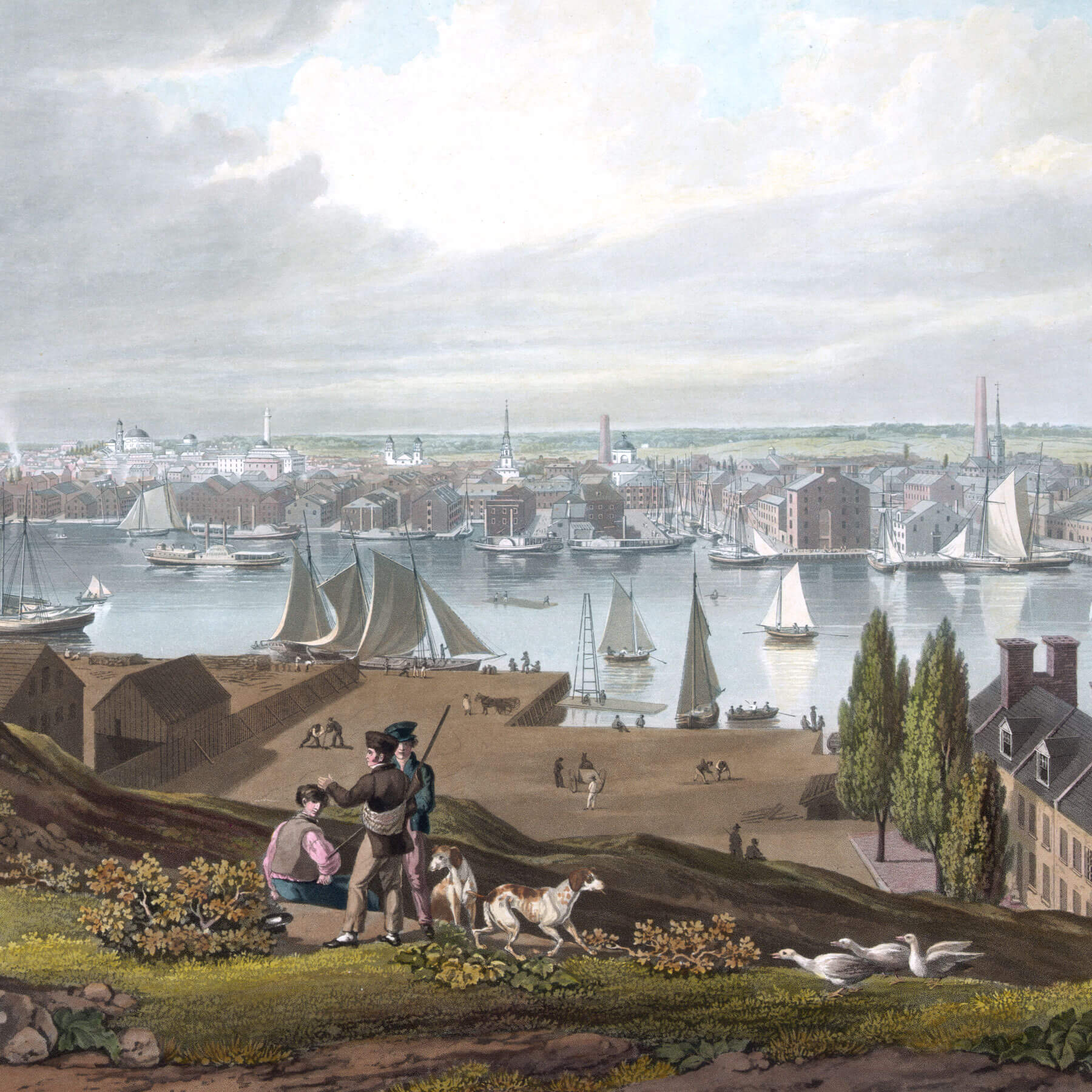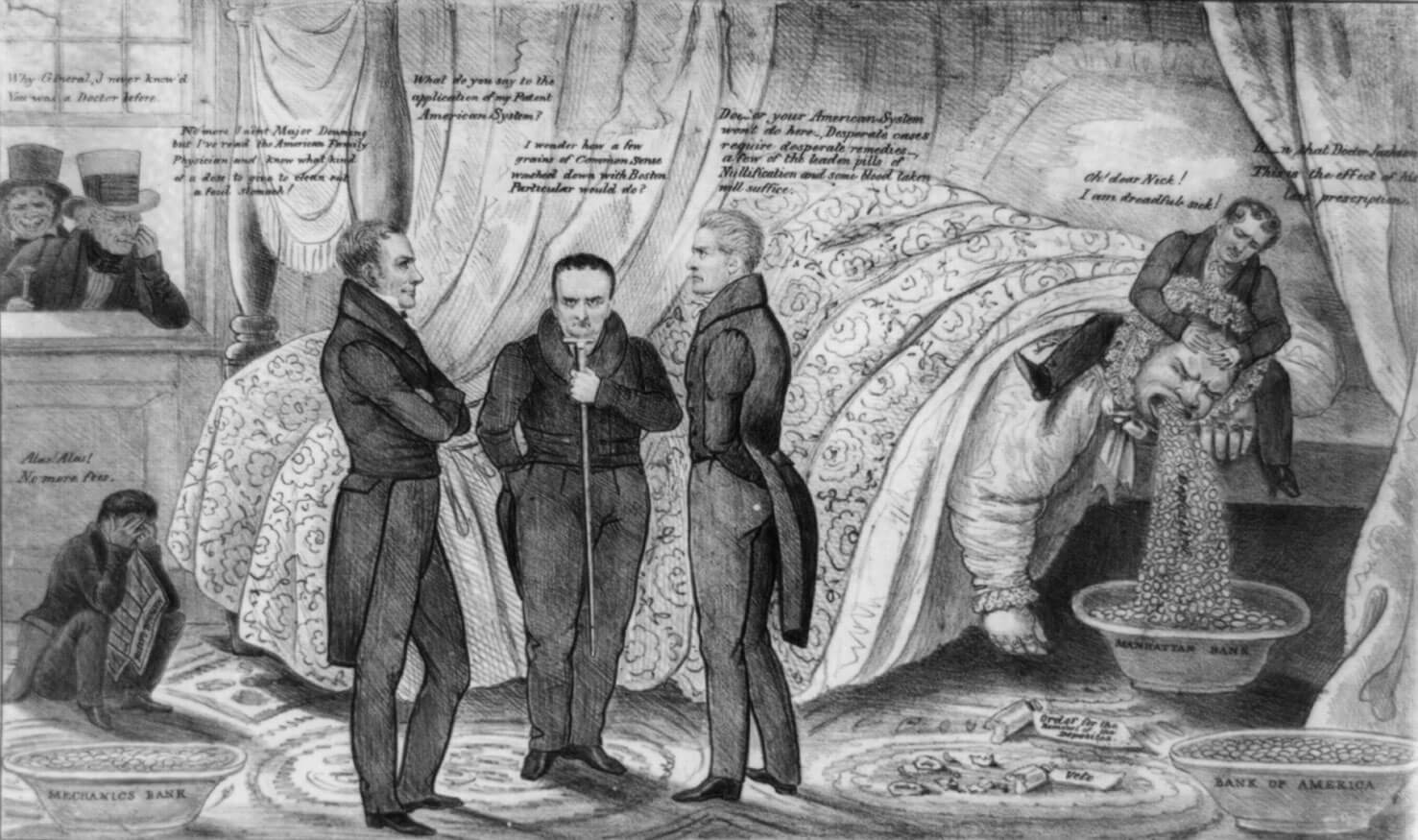Barron v. Baltimore (1833)
Significant Case
John Marshall’s last opinion which addressed the existing parameters of federalism in relation to the states.
Background
At the turn of the 19th century, Baltimore, Maryland, became a gateway trading port in the United States. In 1811, when Congress decided to build a National Road that originated in Baltimore, the city became increasingly vital to both international and domestic trade for the nation. The federal investment in infrastructure allowed more goods to get to the interior of the country. Recognizing this, merchants looking to increase their profits purchased land around the harbor for ships to load and unload their goods for trade.
In 1815, John Craig and John Barron purchased a wharf in East Baltimore for $25,000. This wharf was deep enough to accommodate large ships, resulting in a highly profitable business for the men. At the same time, the city of Baltimore was creating infrastructure for its citizens and diverting streams directly into the harbor. This diversion caused sediment to deposit in the harbor, often directly around the profitable wharves. With the increase of runoff and sediment, wharves became more shallow, and larger ships could not dock and load/unload their cargo.
Facts
In February 1822, John Barron sued the Mayor and City Council of Baltimore claiming that the diversion of streams and resulting buildup of sediment in the harbor impeded his business, given that he was no longer able to accept large vessels due to the changing depth of his wharf. The case went before the county court and repeated delays were granted to the defense. Six years later, in March 1828, Barron won the case and the jury awarded $4,500 in property damages.
The Mayor and City Council of Baltimore appealed the county court verdict, requesting the case be heard by the Maryland Court of Appeals. They maintained that as representatives of Baltimore they were within their rights to oversee the land and improve it for the good of all citizens. During the appeal, Mr. Barron’s attorneys again argued that they were justified in asking for compensation for damage to their private property because of the actions of the city, though he did not explicitly mention the 5th Amendment’s Just Compensation Clause. In December 1830, the Maryland Court of Appeals overturned the lower court’s judgment. Barron’s attorneys filed a petition for a writ of certiorari, appealing the decision to the Supreme Court.
Issues
- Does the 5th Amendment’s just compensation clause protect citizens from actions implemented by state governments as well as the federal governments?
- Are the actions of state governments regulated by the US Constitution?
Summary
In order to rule on the case, the Supreme Court first had to establish it had jurisdiction to hear the case.
Barron’s lawyer organized his argument into 5 points:
- Barron sued the city of Baltimore alleging it was liable for depriving a citizen of their ability to use their private property without just compensation.
- The state of Maryland granted the authority of implementing infrastructure changes to the city of Baltimore.
- Due to the 5th Amendment’s Takings Clause, “Nor shall private property be taken for public use without just compensation,” it was the city of Baltimore’s responsibility to compensate Barron for damages to his private property that occurred during the public works projects.
- Baltimore (with the authority from the state) acted contrary to the Constitution, which is why the Supreme Court has jurisdiction over the case.
- The Supreme Court should rule that it does have jurisdiction and examine the facts of the case to determine if the plaintiff had particular damage to his personal property because of the actions of the city of Baltimore.
Chief Justice Marshall’s last opinion as a member of the Supreme Court was handed down 12 years after the case’s first hearing in front of a local court in Maryland. In the unanimous and brief opinion, Marshall concluded that the Constitution and Bill of Rights were only directed to outline and restrict the federal government, not the state governments. The drafters of the Bill of Rights, he argued, were only trying to limit abuses by the federal government. Each state had created its own constitutions and Barron’s case was against his local government. Therefore, the Supreme Court did not have jurisdiction and the case was dismissed. In his opinion, Marshall suggested that, if people have a problem with their state constitutions, they have the power to change them through legislative action at the local level.
Precedent Set
“The question thus presented is, we think, of great importance, but not of much difficulty”
– John Marshall, in his unanimous opinion
John Marshall was a dedicated Federalist and had a broad view of the powers of the federal government. He was also, however, a proponent of what became known as federalism, recognizing that the United States federal government and the states coexisted and exercised authority within their constitutionally determined jurisdiction. The Supreme Court’s dismissal of the case established that the Bill of Rights did not apply to the states at that time.
Additional Context
“Nor shall any state deprive any person of life, liberty, or property, without due process of law; nor deny to any person within its jurisdiction the equal protection of the laws”
– 14th Amendment, US Constitution
The decision in Barron was a motivating factor for passage of the 14th Amendment after the Civil War. Ratification of that amendment provided the foundations for applying most, but not all, of the protections in the Bill of Rights to the states provided the foundations for applying most, but not all, of the protections in the Bill of Rights to the states. In particular, it provided the basis for later decisions of the Court recognizing that states could not deny either “due process” or the “equal protection of the laws.”
Decision
The Court issued a unanimous decision in favor of Baltimore.
- Majority
- Concurring
- Dissenting
- Recusal
-
Marshall
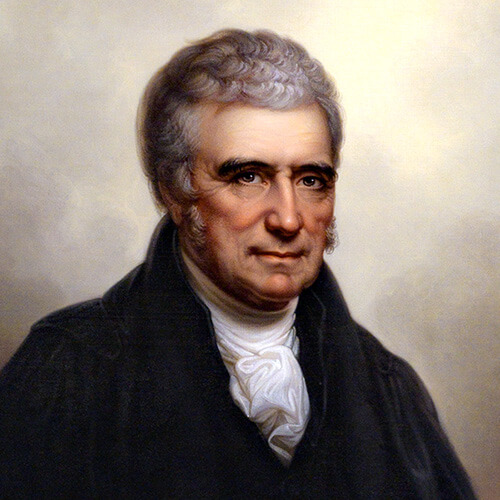
-
Johnson
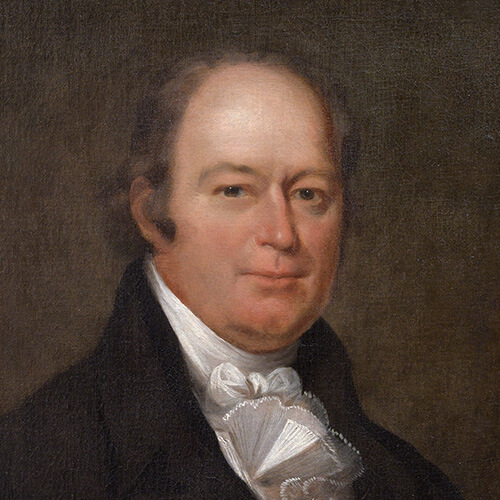
-
Duvall
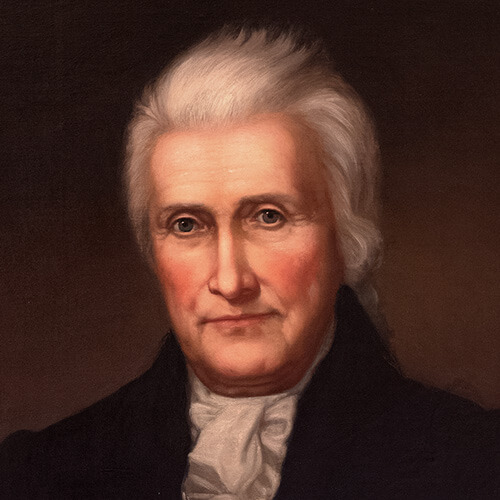
-
Story

-
McLean
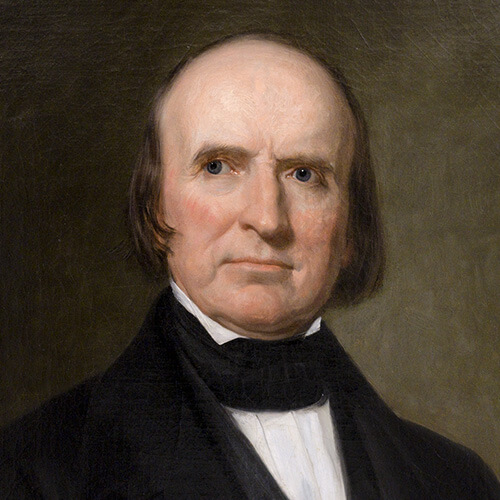
Discussion Questions
- Why did John Barron sue the city of Baltimore? Did he have a strong argument to sue the city?
- Why would the appellate court overturn the ruling in favor of Barron? What was its strongest argument in overturning the original ruling?
- How does this decision help to define the idea of federalism in the United States?
- What could be a drawback of the Supreme Court ruling that the Bill of Rights did not apply to the state governments?
Sources
Special thanks to scholar and Law Professor Mark R. Killenbeck for his review, feedback, and additional information.
Barron v. Mayor & City Council of Baltimore, 32 U.S. 243 (1833) https://supreme.justia.com/cases/federal/us/32/243/
Doherty, Brendan J. Interpreting the Bill of Rights and the Nature of Federalism: Barron v. City of Baltimore. Journal of Supreme Court History (2007) vol 32, #3. 211-228.
Feature Image: Baltimore from Federal Hill / paind. & engd. by W.J. Bennett. Library of Congress.
Marshall, John. Constitutional Decisions of John Marshall, Volume 2. (1905) 378-385.
